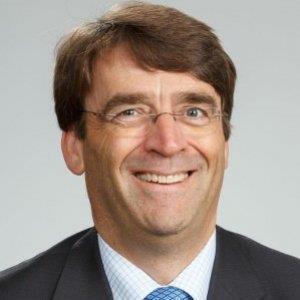
Daniel Hoornweg
PhD
Richard Marceau Chair
Associate Professor
Faculty of Engineering and Applied ScienceDr. Hoornweg's primary research focus is urban systems, the energy they use and waste they produce, as well as community sustainability and progress toward local and global objectives. Dr. Hoornweg's prior work experience includes almost 20 years as World Bank Lead Advisor on cities and climate change and several years as Chief Safety and Risk Officer for the Ontario Technical Safety Standards Association (TSSA).
daniel.hoornweg@ontariotechu.ca
905.721.8668 ext. 5560
- PhD - Philosophy, Environmental (Civil) Engineering University of Toronto, Toronto, Ontario 2015
- MSc - Environmental (Municipal) Engineering, School of Engineering University of Guelph, Guelph, Ontario 1992
- BSc - Civil Engineering (Geotechnical) (Honours) University of Waterloo, Waterloo, Ontario 1985
An Urban Approach to Planetary Boundaries
Published in Ambio, A Journal of the Human Environment February 20, 2016Daniel Hoornweg, Mehdi Hosseini, Christopher Kennedy & Azin Behdadi
The achievement of global sustainable development goals subject to planetary boundaries will mostly be determined by cities as they drive cultures, economies, material use, and waste generation. Locally relevant, applied and quantitative methodologies are critical to capture the complexity of urban infrastructure systems, global interconnections, and to monitor local and global progress toward sustainability. An urban monitoring (and communications) tool is presented here illustrating that a city-based approach to sustainable development is possible.
Meeting the Infrastructure Challenges of African Cities
Published in ICSI 2014, American Society of Civil Engineers November 6, 2014Daniel Hoornweg, Katherine Sierra, Michael Sanio and Kim Pressnail
When assessing Africa's urbanization trends and the acute need for finance, the stability of macroeconomic and social conditions, institutional strengthening, efficient urban form, and capacity - this paper asserts that a critical need is a capacity, especially domestic engineering capacity. The scale of Africa's capacity needs will necessitate new models of collaboration and urban management.
View more - Meeting the Infrastructure Challenges of African Cities
Low-Carbon Infrastructure Strategies for Cities
Published in Nature Climate Change March 16, 2014C. A. Kennedy, N. Ibrahim & D. Hoornweg
Reducing greenhouse gas emissions to avert potentially disastrous global climate change requires substantial redevelopment of infrastructure systems. Cities are recognized as key actors for leading such climate change mitigation efforts. We have studied greenhouse gas inventories and the underlying characteristics of 22 global cities. These cities differ in terms of their climates, income, levels of industrial activity, urban form and existing carbon intensity of electricity supply.
Peak Waste: When is it Likely to Occur?
Published in Journal of Industrial Ecology February 1, 2015Daniel Hoornweg, Perinaz Bhada‐Tata & Christopher Kennedy
Population and per capita gross domestic product (GDP) projections are used to estimate total global municipal solid waste (MSW) generation over the twenty-first century. Some projections for the global population suggest that it will peak this century. Waste generation rates per capita generally increase with affluence, although in the most affluent countries there is also a trend toward dematerialization. The confluence of these factors means that at some point in the future total global waste generation could possibly peak. To determine when peak waste might occur, we used the shared-socioeconomic pathway scenarios (used in Intergovernmental Panel on Climate Change [IPCC] studies) combined with estimates of municipal solid waste (MSW) generation rates, extrapolated from our work for the World Bank.
Environment: Waste Production Must Peak this Century
Published in Nature, International Weekly Journal of Science October 30, 2013Daniel Hoornweg, Perinaz Bhada-Tata & Chris Kennedy
Solid waste — the stuff we send down our chutes, discard at work and put on the curb every week — is a striking by-product of civilization. The average person in the United States throws away their body weight in rubbish every month. When waste management works well, we give it little thought: out of sight and, usually, quickly out of mind. Discarded materials are collected, some are recycled or composted, and most are landfilled or incinerated. But the global view is troubling.
View more - Environment: Waste Production Must Peak this Century
- Professional Engineers Ontario
- Evergreen CityWorks
- Columbia University
- Massachusetts Institute of Technology
- John Hopkins School of Advanced International Studies
- University of Toronto
- Cambridge University
- World Research Institute
- World Energy Council
- International Energy Association
- World Business Council for Sustainable Development
- American Society of Civil Engineers
- Fossil Fuel Energy Conversion
- Fossil Fuel Energy Conversion (ENGR 4480U, MECE 4410U)
This course will examine recent advances in energy systems, including fossil, nuclear, solar, wind, biomass, municipal waste, geothermal, tidal and wave energy; new energy sources, methods of conversion, transportation, storage and disposal will be examined from a systems point of view, and include environmental, economic and political aspects; feasibility of new technologies and significant advances in existing technologies will be examined. - Hydrogen Power Systems (ENGR 4470U)
Potential benefits of the hydrogen economy; hydrogen production by reforming and by electrolysis; storage methods, including compressed gas, liquid hydrogen, metal hydride, graphite, iron sponge; minimizing combustion and explosion hazards; applications in transportation, small and large scale stationary power applications; integrated energy systems using hydrogen as the key energy carrier.